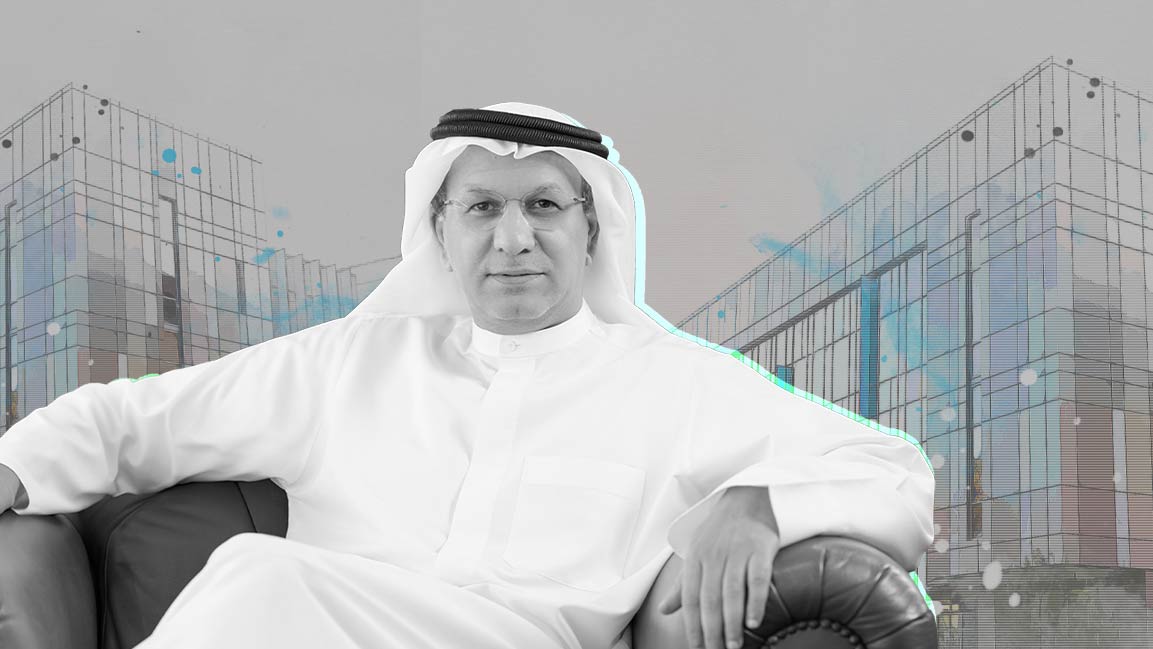- | 10:00 am
How does property giant Deyaar stand out in the hyper-competitive market? Being future-ready
Deyaar Development CEO Saeed Mohammed Al Qatami says the company focuses on sustainable living spaces and integrated community experiences

While still emerging, Dubai’s real estate landscape, brimming with shiny luxury towers and villa communities, has dominated the world’s leading markets for many years. Real estate has long been a core economic sector and investment of choice in the UAE, buoyed by strong demand fundamentals from solid population and GDP growth, leading to increased luxury property ownership.
While 2024 was a record year for the real estate market, 2025 is on course to surpass last year’s numbers as developers pile into one of the world’s biggest property booms.
STANDING OUT
Amid the unprecedented growth of real estate wealth, Deyaar is one of the power players driving the market with impressive urban development projects in Business Bay, Dubai Production City, Dubai Silicon Oasis, Jebel Ali, and Al Furjan.
“We have been able to stand on with several remarkable projects in the hyper-competitive Dubai market, where many world-class real estate players are vying to attract investors,” says Saeed Mohammed Al Qatami, CEO of Deyaar Development.
This success, he adds, is guided by a well-defined strategic plan. The company is expanding to other emirates and recently launched its first project in Abu Dhabi.
With these projects spanning key growth corridors and prime locations within the emirate, Deyaar is reshaping the built environment and real estate dynamics in one of the world’s highest-demand markets.
“Innovation is essential rather than optional in modern real estate development,” he says.
Crucially, like other sectors, Al Qatami says digitalization and technology are being leveraged in real estate for future growth opportunities, playing a transformational role in planning, monitoring, staffing, and ensuring on-time project delivery.
“We have adopted a holistic approach to integrating technology and sustainability, focusing on reducing carbon footprints through material selection and energy-efficient designs.”
He adds that its developments incorporate smart home technologies and sustainable practices while emphasizing connected community living.
SUSTAINABLE PRACTICES AND DESIGN
Climate change, with a noticeable uptick in environmental degradation everywhere, has been trending for a while. It is not news. But now, there’s an urgency for meaningful action in real estate, driving home the need for swift and transformative change for the broader industry.
Smart home technologies, energy-efficient solutions, and eco-friendly materials are some solutions.
“As leading real estate developers, we ensure that these innovations translate into tangible benefits for residents, from reduced energy bills to a smaller carbon footprint. This sets the standard for the rest of the industry to follow,” adds Al Qatami.
Through its various projects, Deyaar has emphasized sustainable living spaces and integrated community experiences, incorporating green building practices, energy-efficient systems, and sustainable materials.
Sustainability, in this view, is not just about the environment. It’s about reimagining a better future, general well-being, and enhancing the quality of life. The most impactful designs have risen to the challenge of meeting both human needs and an environmental imperative.
“Projects such as Park Five, Mar Casa, Eleve, Tria in Dubai, and Rivage in Abu Dhabi showcase our focus on creating cohesive living environments that balance residential, commercial, and recreational facilities while promoting environmental sustainability,” he adds.
Deyaar’s design philosophy centers on creating future-ready communities that align with Dubai’s long-term urban planning goals.
“We focus on selecting strategic locations and strongly emphasize integrating sustainability, wellness, and innovative design into all our developments.”
“Our architecture combines aesthetic appeal with functionality to create spaces that are not only visually striking but also practical and livable.”
This is evident in projects like Mar Casa in Dubai Maritime City, Rivage, and Park Five.
To balance rapid urban development with the UAE’s broader goals, Al Qatami says Deyaar has strategically focused on key areas such as Business Bay, Al Furjan, Dubai Production City, Dubai Silicon Oasis, and Downtown Jebel Ali, targeting the mid-to-high range market segment.
“These developments emphasize mixed-use spaces that combine residential, commercial, and retail elements. We offer diverse pricing strategies and flexible payment plans to cater to end-users and investors.”
Since its IPO in 2007, Deyaar has expanded into various business units catering to diverse needs, including property development and management, hospitality, and facility management.
Recently, the company announced its preliminary unaudited financial results for 2024; total revenue increased by 20.61% to $412 million in 2024 compared to $341.7 million in 2023. The company also reported a 5% increase in revenue from other businesses in 2024 compared to 2023, and total assets grew by 5.8% in 2024 compared to 2023.
However, turning the tide post-pandemic has been challenging. Deyaar, Al Qatami says, successfully addressed challenges by “capital restructuring and eliminated accumulated losses by increasing development activities and launching flagship projects.”
While these set the stage for a broader recovery, turning Deyaar into a profitable entity, he cautiously adds, “While we don’t anticipate specific challenges currently, we monitor market dynamics as new developers enter the sector.”
EMERGING TRENDS
Amid the UAE’s real estate market boom, boosted by government initiatives like Golden Visas and freelancer visas, which have attracted global talent, freehold properties, and the high quality of life the country offers, Al Qatami says the industry is seeing several emerging trends, including a shift toward quality over quantity in new developments and growing demand in growth corridors aligned with the Dubai 2040 Urban Master Plan.
“There’s also an increased emphasis on sustainable living and integrated communities, though careful supply management remains crucial for maintaining market stability.” He continues, “Many people are shifting from renting to ownership, further driving demand for quality residential spaces.”
He adds that Deyaar is capitalizing on these trends through strategic project launches and attention to evolving buyer preferences, ensuring its developments meet current and future market needs.
“If we continue to adapt, innovate, and exceed expectations, I am confident we can sustain a healthy equilibrium between supply and demand, driving growth and stability in the UAE real estate market.”







































